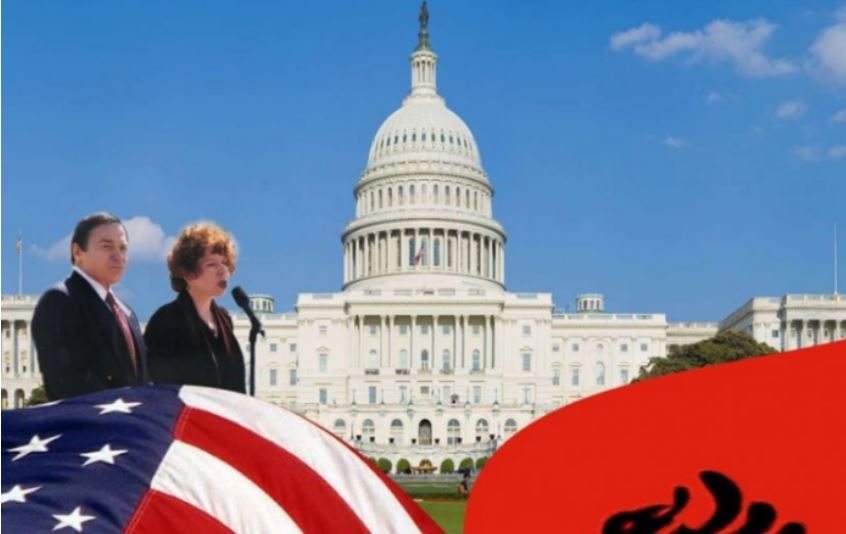UK MP Alicia Kearns, who serves as Chair of the Foreign Affairs Select Committee, spoke in front of the UK Parliament on June 5 in support of Kosova, in which she condemned Serbia “for orchestrating not only the boycott of the April 23rd local elections in the four northern municipalities, but also for causing the violence in the streets of Kosova.”
US Senator Robert Menendez, Chair of the Senate Foreign Relations Committee, released a statement on June 16, in which he contrasted Kosova as a “vital partner” of the West with Serbia’s refusal to join the US and the EU in imposing sanctions on Russia for its war on Ukraine, its lack of commitment to the EU facilitated dialogue between Serbia and Kosova, and the mobilization of its military on Kosova’s border. Chairman Menendez expressed his disappointment the international community’s response to the violence in northern Kosova and with the disproportionate pressure placed on Kosova.
On June 14, Dr. Ivana Stradner made the compelling case in her article in the New York Post “Why Is Biden appeasing a Putin pawn as NATO forces attacked?”, that “Serbia-Russia relations are alive and well,” that together they are escalating tensions in the Balkans, and that instead of appeasing Serbia the EU and the US “should pressure Belgrade to accept Kosova’s independence and impose sanctions on Russia.”
Stradner perfectly captured Vucic’s tactic: to use Kosova as a bargaining chip with the West by escalating and then de-escalating ethnic violence. This is why it was shocking to see US Ambassador to Kosova Jeffrey Hovenier publicly accusing the Kurti government of creating the “crisis atmosphere in the north,” and US ambassador to Serbia Christopher Hill praising Serbia for being a “constructive partner.”
The US State Department, along with the European Union, unfortunately have not understood that Serbian President Aleksandar Vucic has no intention of resolving the Balkan conflict. His goal is to gain control of northern Kosova in his quest to dominate Southeast Europe, not to honor the Association of Serb municipalities as an integral part of Kosova.
And yet when Derek Chollet, US State Department Counselor, was challenged by Senator Menendez in his Foreign Relations Committee hearing on May 18 about the realities put forth by Robert F. Worth in his New York Times Magazine article, “How Serbia’s Leadership Became Entwined with the Nation’s Criminal Syndicate,” Chollet admitted that Worth’s groundbreaking documentation was true.
This is why Kosova Prime Minister Albin Kurti stated on June 23 that Kosova “is ready for new elections in the north and for the withdrawal of the Police from municipal facilities in the four northern municipalities, but only after the legal frameworks for them are completed.” It is clear that Kosova is doing everything right in building democracy and enforcing law and order, while Serbia is doing everything wrong by using threats and violence in northern Kosova against KFOR and journalists, and by kidnapping three Kosova police officers.
We stand behind Prime Minister Albin Kurti’s reasonable position that Serbia must recognize “the constitutionality of Kosova,” before Serbia and Kosova sit down at the bargaining table. Otherwise, Kosova will become another Republika Srpska—in short, a failed state and a permanent problem for the European Union and the United States. To achieve lasting peace and stability in Southeast Europe, mutual recognition and the gradual inclusion of Kosova and Serbia in European structures and NATO is the only way forward. This only can be achieved with the unreserved support of the United States.
Sincerely,
Shirley Cloyes DioGuardi Joe DioGuardi
Balkan Affairs Adviser President
AACL Board of Directors
Agim Alickaj
Anita Alickaj
Diana Alickaj
Nazim Alimi
Fero Gjonbalaj
Sadri Gjonbalaj
Zymer Gjonbalaj
Ramazan Hajdini
Zudi Karagjozi
Faik Lita
Gazmend Lita
Rifat Memeti
Zikri Meta
Marash Nuculaj
Ekuran Sehu
Hafiz Shala
Lindita Shala
Mamut Skenderi
The Albanian American Civic League is the only registered volunteer lobby in Washington, DC, representing the concerns and interests of Albanian Americans about the national cause of seven million Albanians living side by side in Southeast Europe.
